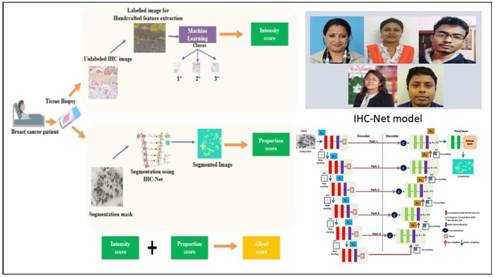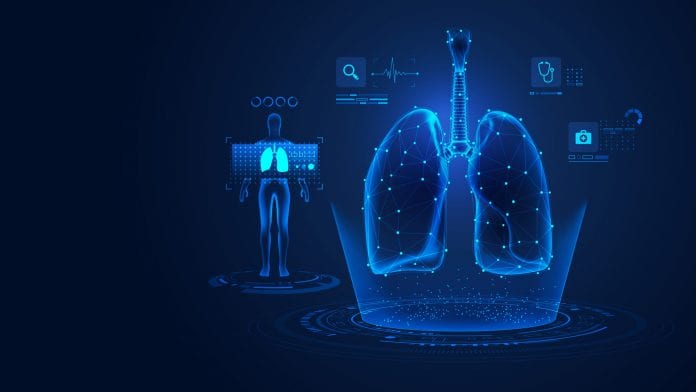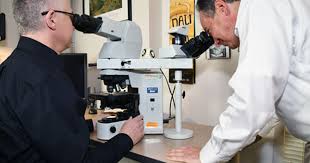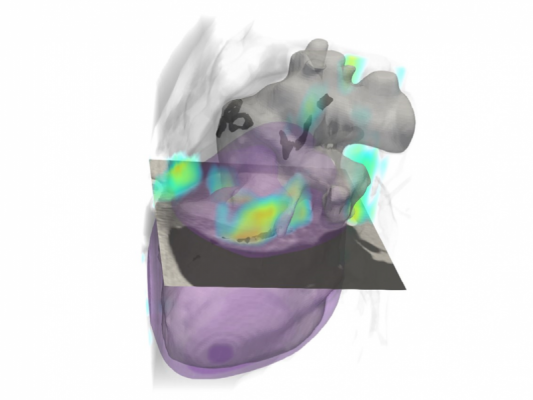Source – https://www.itnonline.com/ Heart disease and cancer are the leading causes of death in the United States, and it’s increasingly understood that they share common risk factors, including tobacco use, diet, blood pressure, and obesity. Thus, a diagnostic tool that could screen for cardiovascular disease while a patient is already being screened for cancer, has the potential to expedite Read More
Tag: Cancer

Source – https://healthitanalytics.com/ Using machine learning methods, researchers discovered the underlying genetic contributors of cancer. Machine learning approaches could help detect mutational signatures in patients with cancer, revealing the genetic effects of the underlying contributors to the disease, a study published in eLife revealed. The new technique uses machine learning algorithms to access and analyze what are called SuperSigs, Read More

Source – https://www.biospectrumindia.com/ A team from the Institute of Advanced Study in Science and Technology (IASST) in Guwahati, an autonomous institute of the Department of Science & Technology, Govt of India, has presented the novel deep learning (DL) based quantitative evaluation of oestrogen or progesterone status with the help of Immunohistochemistry (IHC) specimen to grade for Read More

Source – https://www.healtheuropa.eu/ Researchers say that machine learning could help guide healthcare workers’ treatment decisions for lung cancer patients after developing a model that is 71% more accurate at predicting survival expectancy of patients. A team of Penn State Great Valley researchers conducted a study in which they developed a deep learning model that is more than Read More

Source – https://healthitanalytics.com/ A deep learning algorithm could help providers predict survival expectancy in patients with lung cancer, which could help guide treatment decisions. A deep learning tool was able to accurately predict survival expectancy in patients with lung cancer, potentially leading to more informed care decisions by providers, according to a study published in the International Journal Read More

Source: militarytimes.com A team of researchers at the James A. Haley Veterans’ Hospital in Tampa, Florida, is revolutionizing the way cancer is documented by enlisting the help of a computer to diagnose the disease in one of the largest patient populations in the nation: veterans. Sophisticated artificial intelligence is capable of drastically altering how cancer Read More

Source: pharmacytechnologyreport.com To better study the outcomes and costs of caring for cancer patients and emphasize value, oncologists at Hackensack Meridian Health’s John Theurer Cancer Center, in New Jersey, teamed with data scientists and engineers eight years ago to create their own analytics program to mine patients’ electronic health records for real-world data. Since then, Read More

Source: financialexpress.com While the study is not a pioneering work—NYU research had already established similar results—what makes Google’s work unique is the fact that it was conducted across two countries with a larger sample. More important, as against artificial lab comparison, this one compares performance with real-world diagnoses. When Google, in 2016, announced that its DeepMind Read More

Source:- healthitanalytics.com June 12, 2019 – Using deep learning technology, researchers from Massachusetts Institute of Technology (MIT) and Massachusetts General Hospital (MGH) were able to predict women’s future risk of breast cancer development more accurately than when they used traditional methods, according to a study published in Radiology. Current models use factors like genetics and family history to predict risk, but Read More

Source – guardian.ng One of the major challenges faced in treating cancer is the constantly changing nature of tumours hence proposed treatment at a particular time may not be effective because tumours become resistant to drugs or proposed treatment. Artificial Intelligence in a new development has come in useful in predicting how cancers will progress and Read More
